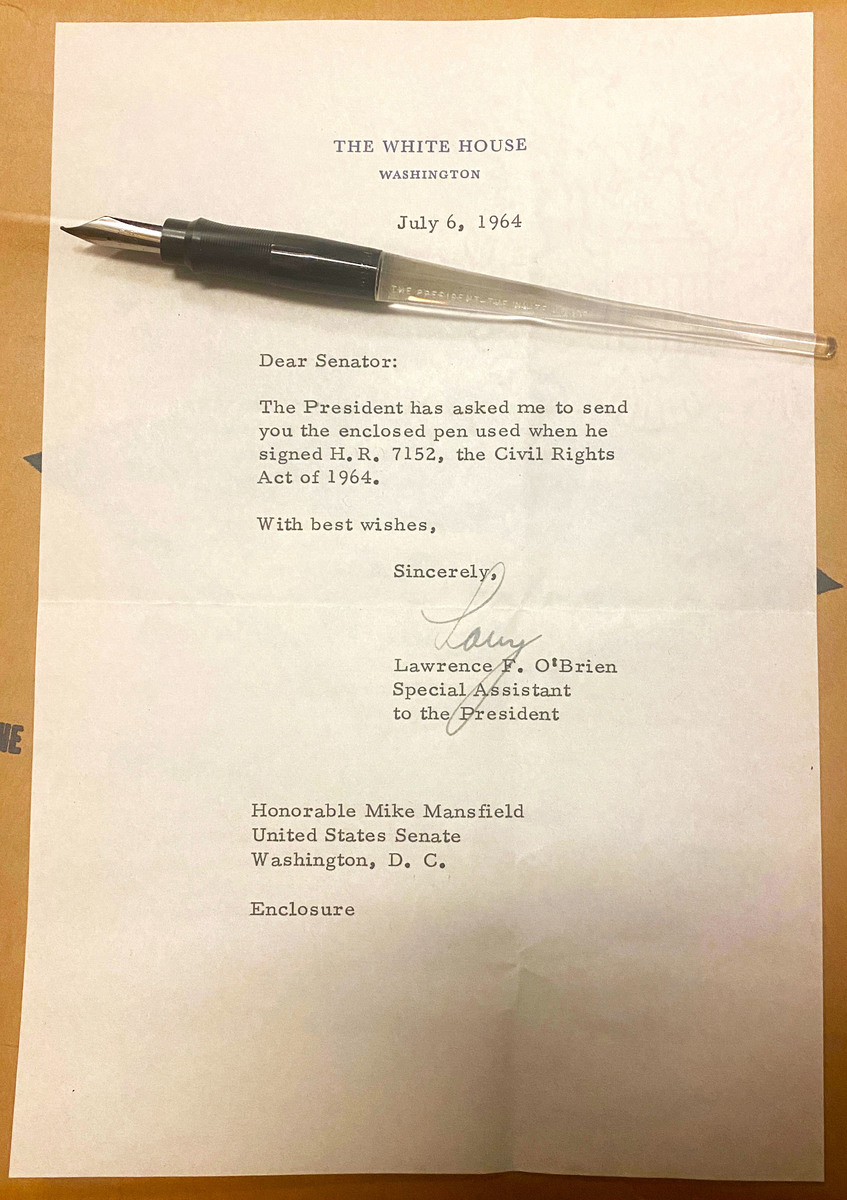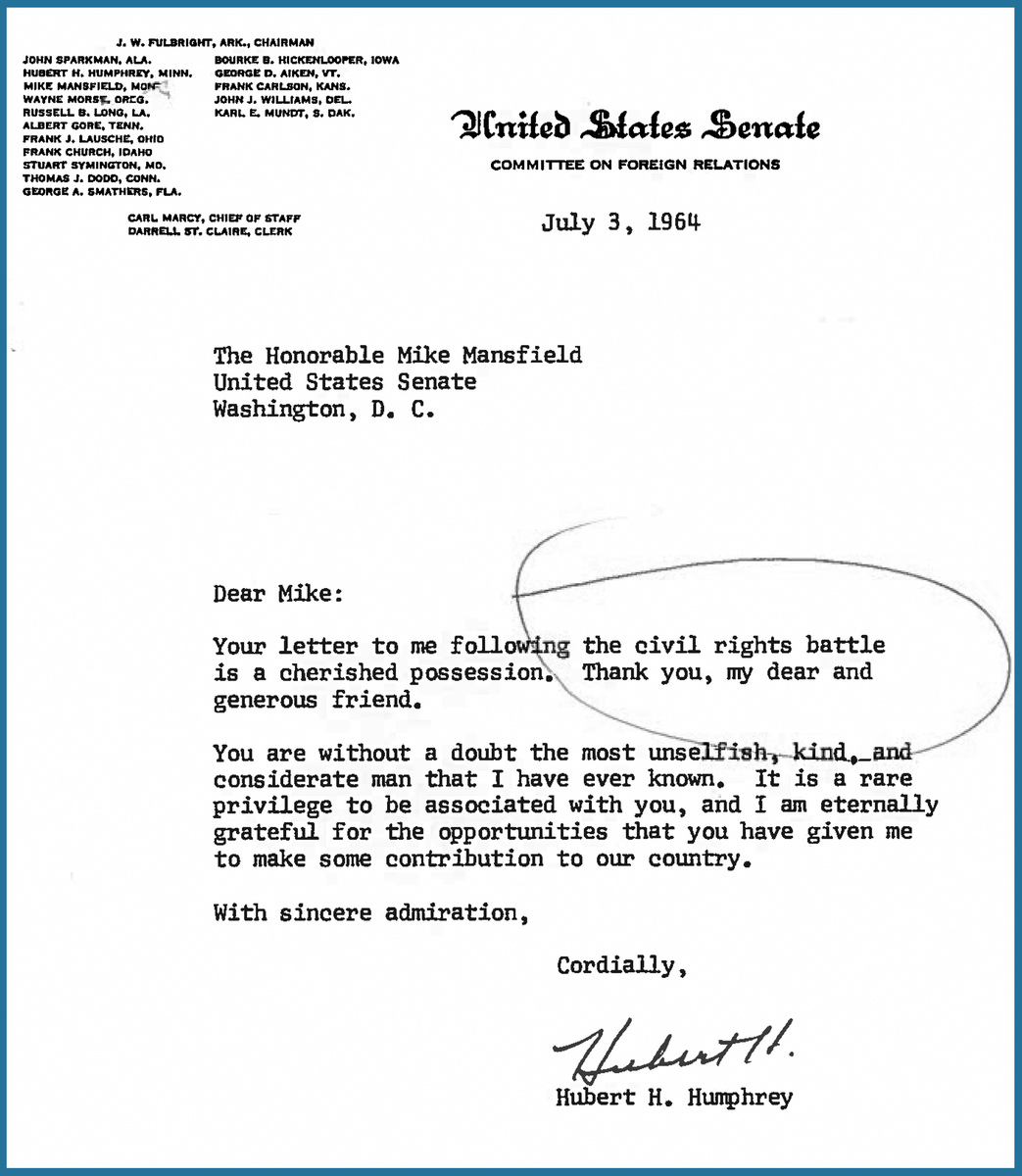A Bill Becomes Law

This pen and accompanying letter are from President Lyndon Johnson to Mike Mansfield. Johnson gifted Mansfield the pen he used to sign the H.R. 7152 into law. Mss 065, Series XXIX, Box 40
On July 2, 1964, President Johnson signed H.R. 7152 into law. The 1964 Civil Rights Act remains the benchmark of civil rights legislation. It ended racial segregation, which the U.S. Supreme Court in 1896 declared constitutional on the basis of "separate, but equal." The Act also extended civil, political, and legal rights and protections to all U.S. citizens, regardless of color.
Speaking on the Senate floor, Everett Dirksen stated of the Act: "It's time has come."
When asked by his biographer Don Oberdorfer why he felt the fight for the Civil Rights Act was so important, Mike Mansfield replied, "I was worried about the country." (Interview with Mike Mansfield, November 10, 2000, OH 391-020)
A day after Johnson signed the bill, Hubert Humphrey wrote to Mansfield expressing his gratitude for Mansfield's friendship and character.
"You are without a doubt the most unselfish, kind, and considerate man that I have ever known. It is a rare privilege to be associated with you."
Mansfield commended Humphrey's role in getting the bill passed. "He knew all the ins and outs about the bill. He was devoted to the cause of civil rights, going back to the 1948 [Democratic] Convention, and probably before that when he was mayor of Minneapolis. He concentrated on this bill. Usually, he had three or four concentrations on different things going at a time. Fine mind. But he seemed to have put everything else aside and concentrated solely on this bill." (Interview with Mike Mansfield, November 10, 2000, OH 391-020)


